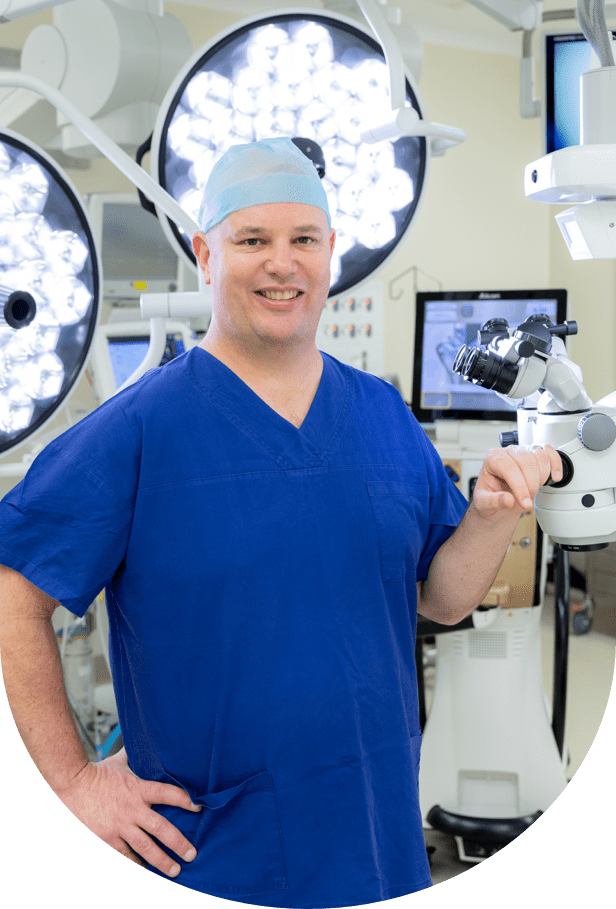Dr Adrian Hunt
Ophthalmologist & Eye Surgeon in Miranda
Dr Adrian Hunt is a very experienced ophthalmologist who manages both medical and surgical eye conditions. He is an expert in diagnosing and managing cataract, macular degeneration, glaucoma and diabetic retinopathy.

Eye Surgeon &
Medical Retina Sub-Specialist
Dr Adrian Hunt treats serious eye diseases.
Dr Hunt has expertise in the diagnosis and treatment of conditions of the retina. He operates weekly on patients with cataract, pterygium, eyelid conditions and can combine cataract surgery with minimally invasive stents to get patients off glaucoma drops.
We welcome patients with a range of general ophthalmology problems. If you are noticing changes to your vision, please get in touch.
Your local eye surgeon.
Our practice utilises the latest diagnostic equipment and evidence-based treatments. All patients will see Dr Hunt after visual assessment by our Orthoptist and Ophthalmic Assistants. Our small team ensures you receive a personal and friendly experience when you visit us.
